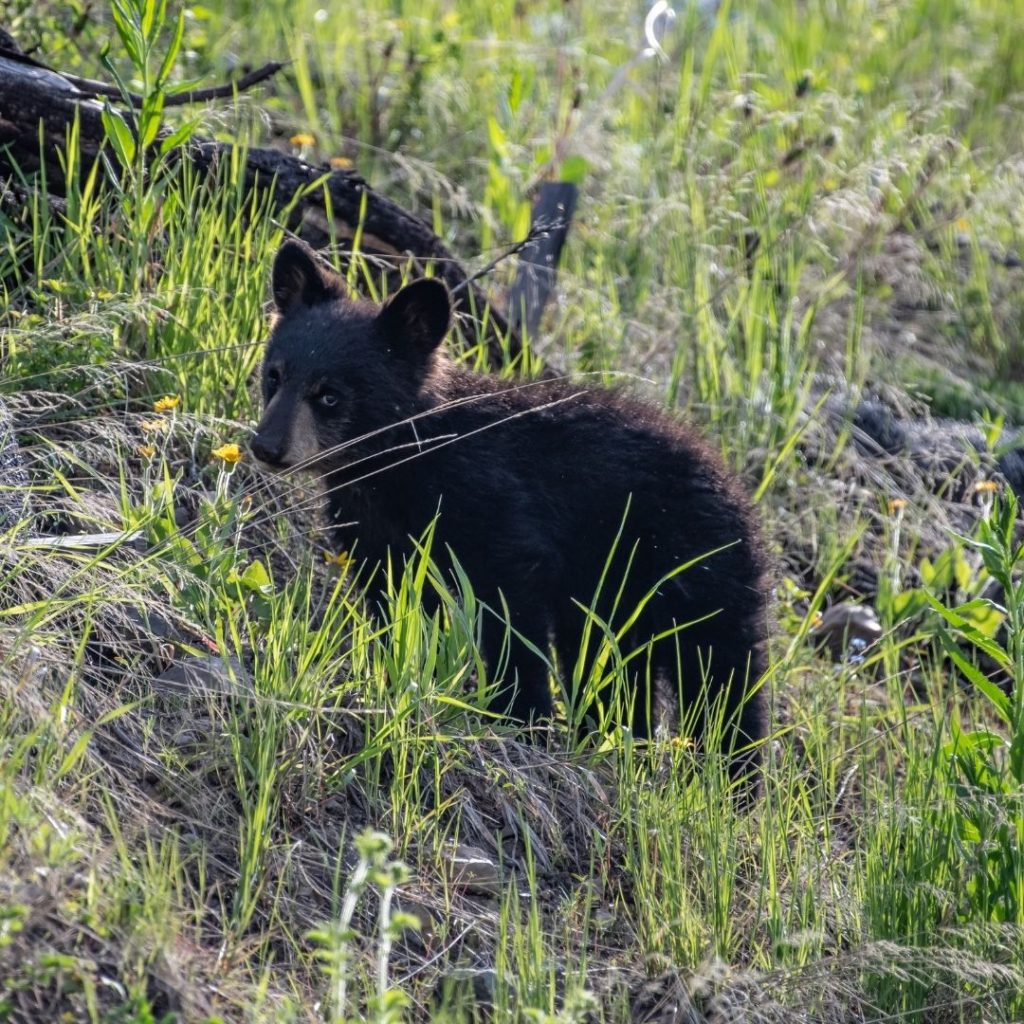Contact: Samantha Bruegger, Executive Director, Washington Wildlife First, 970.531.6720
For Immediate Release: March 19, 2022
Washington Fish & Wildlife Commission Rejects Rule to Set Permanent Spring Bear Hunt
Commissioners cite scientific deficiencies and the need for a values-based discussion
Seattle, WA – Washington Wildlife First is pleased by the Washington Fish and Wildlife Commission’s 5-4 vote on Saturday to reject a proposed rule that would have instituted a permanent spring bear hunt in Washington.
The vote is the culmination of a process that began last fall, which has included many hours of Commission debate and generated widespread public interest, including hundreds of people who signed up to testify about the rule, and tens of thousands who submitted written comment. Management of the Department of Fish and Wildlife had recommended approval of the rule.
“We are grateful for the Commission’s thoughtful consideration of this issue,” said Samantha Bruegger, executive director for Washington Wildlife First. “By voting no on this proposal, five Commissioners cast a vote in favor of science, transparency, and accountability, and showed that the Commission will no longer simply act as a mindless rubber stamp for Department proposals.”
In December 2020, Commissioner Barbara Baker was first the Commissioner to raise concerns about the spring bear hunt, which the Department has insisted for years was necessary for management purposes, such as to prevent bear-human conflicts and mitigate bear damage to commercial timber. Historically, the Department has refrained from offering a purely recreational spring bear hunt, because such a hunt is enormously unpopular—it is supported by only 15% of people in Western states—and due to concerns that it would orphan newborn cubs.
However, under questioning by Baker and others, the Department conceded last year that has no evidence the hunt actually serves any management objectives. Department leadership then switched gears, and began to advocate for the hunt to continue just as a “recreational opportunity.”
“If we are changing the purpose of the hunt, then we need to consider values behind that change. We have not done that yet,” Baker said during debate Saturday.
Joining Commissioner Baker in voting against the hunt was Commissioner Lorna Smith, one of two Commissioners targeted by personal attacks and threats following last November’s 4-4 tie vote, by which the Commission rejected a rule that would have set a spring bear hunt season for 2022. Those attacks contributed to Commissioner Fred Koontz’s resignation in December, which was quickly followed by a petition to consider a new rule establishing a permanent spring bear. The short-handed Commission granted that rulemaking petition in January with a vote of 4 to 3, setting up Saturday’s final vote on the proposal.
In addition to Smith and Baker, the three other Commissioners voting against the proposal on Saturday were Dr. Timothy Ragen, Dr. John Lehmkuhl, and Melanie Rowland, all of whom were appointed to the Commission by Governor Jay Inslee in January.
Dr. Ragen, the former director of the U.S. Marine Mammal Commission, has been a leading voice since he joined the Commission, in calling for the Department to use better science in determining the status of its game populations. He noted that “change is hard,” but that as the Department develops better models, he can “see future better than where we are now.”
Dr. Lehmkuhl, a wildlife biologist and lifelong hunter, took issue with the claim that a vote against this spring bear proposal was “anti-hunting,” noting that people can still hunt bear from August to November. He questioned whether bear hunters really needed two additional months of hunting in the spring, which would give bear only “six weeks of reprieve when not in hibernation.”
In explaining her vote, Commissioner Rowland cited a letter filed in opposition to the hunt by former WDFW carnivore biologist Gary Koehler, who used Department data to question whether the spring hunt may be causing localized “sinks” in the black bear population. In his letter, Dr. Koehler noted discrepancies in the science presented by the Department in advocating for the hunt, and said he has been “concerned by an increasing tendency of WDFW management to filter the information it presents to the Commission and public.” Dr. Koehler’s concerns echo comments made by Department staff in a report by the state auditor last year, in which more than two dozen Department employees voiced concern that executive management often makes decisions on sensitive topics that contradict the Department’s own research and staff recommendations.
“The proponents of the hunt have tried to portray a vote against the spring bear hunt as ‘anti-science,’ when in fact the opposite is true. This vote is supported by the honest assessment of the science and data from published Department research and its own yearly reports,” Bruegger said. “Department management has consistently failed to be open with the Commission and the public about the rationale for this hunt, its potential effects on the bear population, or the inevitability that it will orphan dozens of bear cubs every spring.”
Bruegger said it was “preposterous” to assert that that Saturday’s vote was the first step in a “slippery slope” toward ending hunting in the state, calling this accusation “fear-mongering.”
“What we hope is that this vote will be a ‘slippery slope’ toward greater accountability and transparency in our state’s wildlife management,” she said. “We also hope this will be the start of more involvement in wildlife management by the larger community, because Washington’s fish and wildlife belongs to all of us, and we are all responsible for its conservation.”
###
Washington Wildlife First is a 501(c)(3) nonprofit organization dedicated to bringing about reform, accountability, and transparency within Washington’s environmental agencies, beginning with the Washington Department of Fish and Wildlife.
